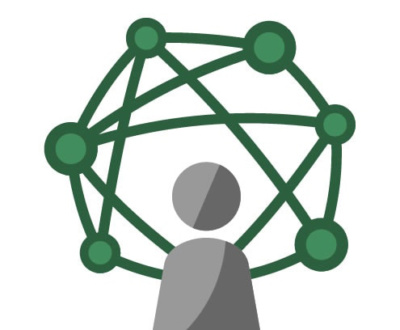Search engine ranking algorithms are growing ever more complex and nuanced in the way they evaluate and index content on the web.
If you use search engines to find things online, then this is nothing but good news.
However, for web marketers, with such a high demand for services that can help improve search ranking, it generates a great deal of frustration and uncertainty both in clients and in colleagues, to know that Google’s and Bing’s (mostly) secret strategy for how they rank continues to change in ways that cannot be assessed directly. For help with your own site’s SEO, check out our Search Engine Optimization and Marketing page.
If you are holding on tight to your link farming strategy, scrambling to add more guest bloggers, or submitting your pages to index after index (I guess I already said link farming), you may be paddling upstream. There are a few reasons for this.
Algorithms for discerning quality
This has been true for some time, but is worth repeating: your internal links had better go to pages with content relevant to the keywords you are targeting. Both Google and Bing are attempting to discern when content is using links to manipulate search results, versus using links for well-intentioned referential expansion of available knowledge and resources.
Most of us have heard of the Panda and Penguin releases that dramatically changed the fortunes of some websites and link-building strategies.
Networks that have been built around manipulative cross-linking strategies are being hollowed out by ever smarter indexing. As end-users of search engines, again, this is such good news!
We’ve all searched for something, only to find pages of ultra-low-quality results. Someone there was simultaneously harming our Internet, and likely making real money doing so.
If Google and Bing ultimately outwit these strategies, everyone wins except the rank-gamers. That’s why we hesitate to use the term SEO anymore, without all kinds of qualifications to distance ourselves from these fly-by-night “top spot” shops. One of the best clues to watch for are references to Panda and Penguin, which both took place well over 18 months ago, and were part of nearly 500 algorithm adjustment Google claims to have made in 2014. These were industry buzzwords for a while, but their power over us is fleeting.
Social Media as Algorithm
In the most general sense, through about 2012, roughly 25% of all internet users had 100% of the (legitimate) influencing impact on search ranking. That is to say, “25% of all users” was a good estimate of the number of active content creators and active content critics at that point in time. Creation of content remains straightforward of course; website builders, bloggers, vloggers; and anyone else building original core content on the internet.
But the circle of critics – mostly blog comment writers, referential linkers – has exploded in the last 3-4 years. Instead of comprising roughly 12% of the estimated internet users, content critics as a group, includes nearly everyone.
What changed?

At first, this seemed a shocking turn of events. Can our sometimes meaningless whims of Likes and Comments actually be helping to drive how search engines rank content?
Absolutely.
And here’s why this is a terrific innovation: Google and Bing are essentially crowd-sourcing our next generation search result ranking algorithms. In a way, this is not new. Google has always leveraged this crowd-source-ish method of letting the web determine the relative values of websites through referential linking and using these data to help rank results (what we used to call Google’s Page Rank). But now, our own social media likes and shares are weighing more and more significantly on Google’s results, based on research in this area by Moz and others.
But the expansion from ranking based partly on site to site links to rankings derived from Facebook shares, re-tweets, and other organic social media signals is an important evolution. Google has repeatedly pointed out that designers and content writers should be focused on high-quality, value-added content for human visitors first, and worry about search engines second (or not at all).
Turns out that high-quality content gets shared and liked a lot on our social networks. Hmm.
Human-Friendly Content Creation
Search engine providers are trying to give your web search results the best possible chance of relevance for you, and every algorithm tweak they make is meant to serve this end. So when you hear the term SEO, it is quickly becoming a mixed bag of still-decent advice (page titles, heading tags, cross-linking) but also less and less valuable recommendations for gaming search engines (comment spam link building, link directories).
At the end of the day, our websites should be HUO (Human User Optimized), and marketing for the web should take advantage of the ability to interact with users through social media as well as on your engaging, relevant website.
If you are adding to the value of the Internet through sharing your knowledge and resources with others, and if you have done the basics of tagging and titling your content, meaningful traffic will follow. This is likely all the search engine “optimization” you will need.
Disagree? Please leave a comment.
Bill lives and plays in Fort Collins, Colorado. After a fulfilling career for a Fortune 50 company, Bill founded Colorado Web Design in 2012 with a passion for creative digital solutions for business. Bill likes to manage a wide variety of projects and tasks for his clients in the digital space. The creative elements of website design, application design, and marketing are enough to keep anyone busy and engaged, but wiping the slate clean over and over at the start of new projects comes with its own challenges. "I like to start with really good client communication sessions. The rest is easy if you get started in the right way." He plays tennis, bikes, and hikes and then undoes all of that with too much delicious food and TV watching.
About Colorado Web Design
We've been building websites for Colorado businesses since 2002. We are a small team of dedicated individuals who love the challenge of each new marketing project. We live and play in northern Colorado.












